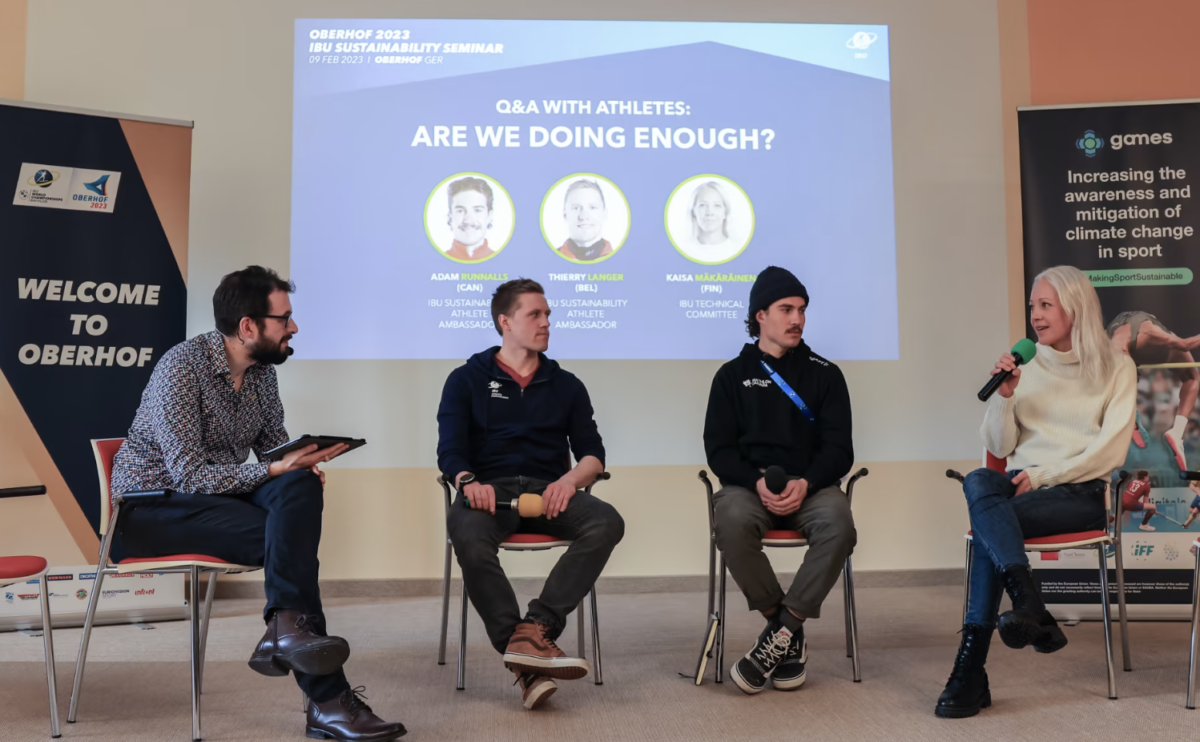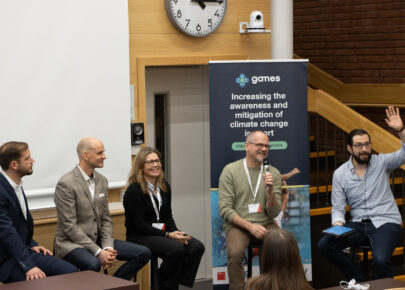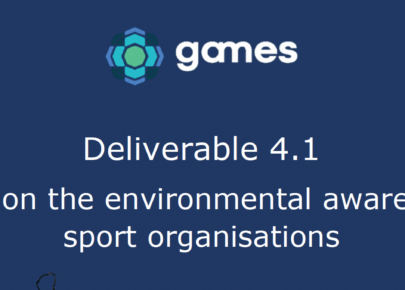Moving from energy efficiency to long-term decarbonisation
Athletes, partners, national federations and scientists were given a platform to share their knowledge, spark ideas and express climate concerns at the International Biathlon Union’s (IBU) first Sustainability Seminar.
Organised to coincide with the World Championships Biathlon 2023 in Oberhof, Germany – and funded by the Erasmus+ GAMES project – the seminar explored how we can move ‘from energy efficiency to long-term decarbonisation’, and focused on an ecosystem approach where all actors work together to achieve the same goal.
Collaboration was a key topic throughout the seminar, particularly in a panel featuring actors from across the value chain: Marlen Marconi, president of nonprofit Snowstainability, Benjamin Pötz of snowmaker TechnoAlpin, Torsten Stark, head of wintersport at IBU Official Climate Partner Viessmann, Tim Holzmüller of BMW and Tiberio Daddi, associate professor at the Sant’Anna School of Advanced Studies, discussed how each of their organisations could contribute to a more sustainable approach to sports events with their own unique skills and products.
As well as honing in on the operational side of things, such as more sustainable mobility and production of snow, the panel agreed that an ecosystem-wide approach to education and engagement would be beneficial when it came to instigating wider societal behaviour change.
That notion was endorsed during the Seminar’s other two panels. In an athlete-led discussion, featuring IBU Sustainability Athlete Ambassadors Adam Runnalls and Thierry Langer, and former biathlon world champion Kaisa Mäkäräinen, it was agreed that the athlete voice could play a significant role in bringing attention to more sustainable behaviours to a mainstream audience.
In an earlier panel, European Broadcasting Union head of wintersport Robert Portmann explained that the broadcasters have a part to play to communicate the threat of climate change to sport and sustainability work being undertaken by event organisers and federations. But, alongside fellow panellists Rikard Grip (Swedish Biathlon Federation), Lilli Schmitt (Deutscher Skiverband) and Dr. Hartmut Schubert (ZV-TWZ Region), he acknowledged that getting your own house in order was the crucial foundation for authentic communication.
Dr. Schubert used the panel to give delegates some insight into the modernisation of the facility hosting the World Championships, which included the installation of 2,000 modules of photovoltaics (covering 20% of the venue’s energy needs), a biomass boiler and a “state-of-the-art” snow management facility to maximise efficiency.
More details about the Oberhof modernisation plan can be read here.
During the World Championships, the technical partner of the GAMES project, the Sant’Anna School of Advanced Studies, conducted an environmental audit as part of the project’s aim of discovering methods to decarbonise sports events.
In his keynote, Dr. Sven Kotlarski, a climate scientist at the Swiss Federal Office for Meteorology, stressed that widespread decarbonisation was the only way to achieve global temperature targets.
“Snow sports are heavily challenged,” he said. “Sustainable strategies are needed.”
Max Cobb, the general secretary of the IBU, summed the Seminar up with a call to action: “We have to measure where we are, accept what we cannot change but commit to what we can change. Set ambitious goals. Innovate to find solutions. Hold ourselves accountable. And set an example – using our platform and engaging our athletes to advocate for impactful change.”






